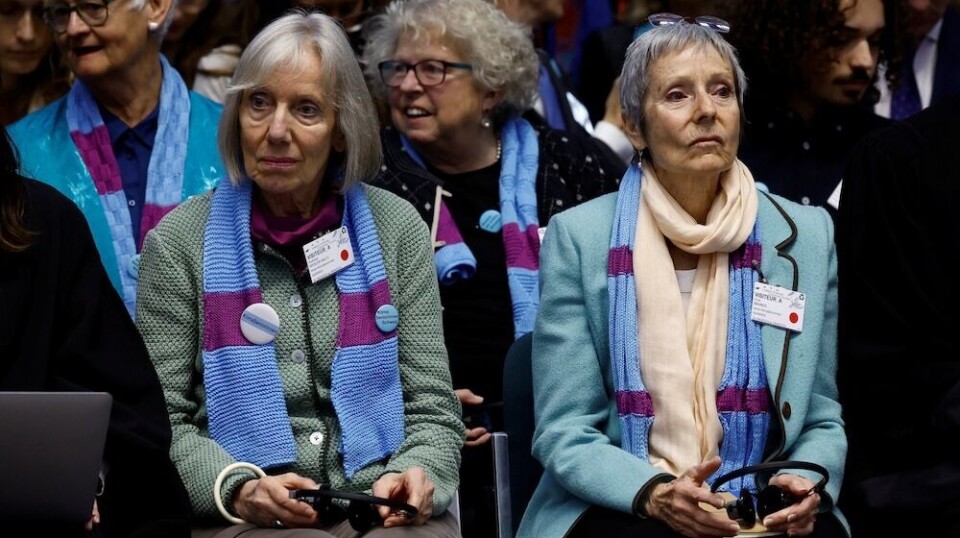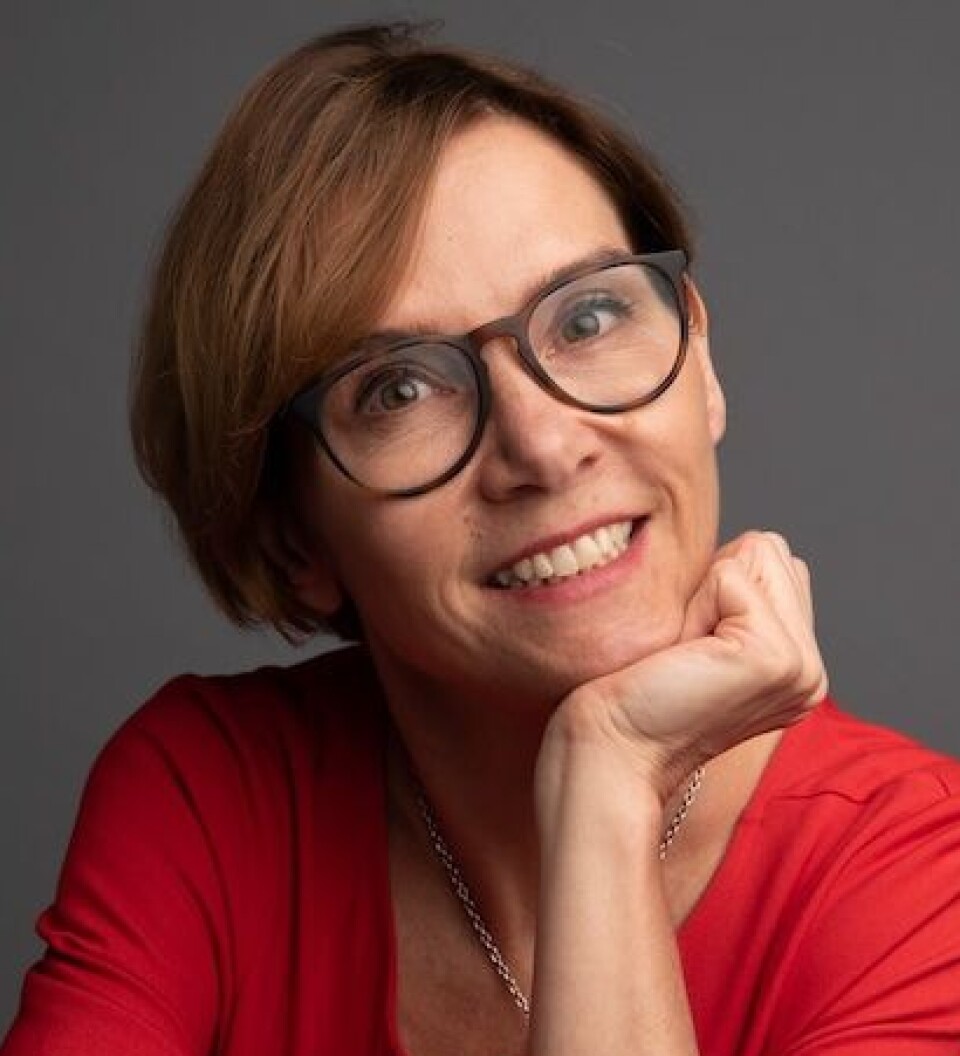THIS CONTENT IS BROUGHT TO YOU BY University of Oslo - read more

Court case in Strasbourg becomes historic:
"Courts are becoming important in the fight against climate change"
In recent years, climate lawsuits have reached the top of the international legal system. Law professor Christina Voigt believes that we have only seen the beginning of a trend that could have significant implications.
In April, a group of elderly Swiss women achieved a historic victory in the European Court of Human Rights (ECtHR). They had sued their home country for not doing enough to protect them from climate change, and feared the consequences of intense heatwaves.
The women received support from the ECtHR: The ruling stated that the Swiss government had violated their right to privacy and family life by failing to implement sufficient climate measures. They had violated their obligations under the European Convention on Human Rights (ECHR).

Christina Voigt, a law professor and expert in international environmental law at the University of Oslo's Faculty of Law, was a so-called third-party intervener in the lawsuit: She had submitted a written expert opinion that formed part of the background material for the judges.
“In the last decade, we've seen many climate cases in national courts in countries such as Germany, the Netherlands, the USA, Pakistan, and also Norway. What's new is that in the past two years, some cases have also bubbled up to international courts," she says.
This means that states are told what to do by a supranational judicial body.
Lost in Switzerland, won in Strasbourg
The Swiss women pursued their case through every level of the Swiss judicial system before taking it to the European Court of Human Rights (ECtHR) in Strasbourg. They had consistently lost in Switzerland.
“Swiss politicians had made condescending statements in the media. When the judgment came, many were upset and thought it was absurd,” says Voigt.
However, Switzerland is now required to strengthen its climate goals and measures and report back to the court. Voigt adds that Swiss courts will also need to consider this ruling in future national court cases.
The ruling also has implications for the other member states of the Council of Europe, including Norway, which have all accepted the ECtHR's jurisdiction.
For almost 20 years, Voigt has worked on climate law and how climate change affects the legal system. She conducts research on the topic and is a third party in several lawsuits. Additionally, she leads the World Commission on Environmental Law, a commission within the International Union for Conservation of Nature (IUCN), representing IUCN in major international legal climate cases.
Will follow the Paris Agreement
International courts must consider several international treaties and customary international law in their decisions.
In an article in the journal RECIEL, Voigt writes that the 2015 Paris Agreement will likely serve as a guideline in such cases. This especially applies to the ambitions outlined in each country's plans for emission reductions.
“If the courts move beyond these frameworks, there's a risk of establishing parallel or alternative standards for climate actions. Additionally, it undermines the significance of the Paris Agreement, and the international legal system becomes even more fragmented than it is today," Voigt believes.
Linking climate change to human rights
In the case of the Swiss women, the ECtHR did just that: The court interpreted the European Convention of Human Rights (ECHR) in light of the Paris Agreement. The ruling is 250 pages long and is expected to be thoroughly examined by academics and organisation members in the coming months.
This was the very first ruling to establish a direct link between climate change and human rights by stating that a state that does not do enough to reduce climate change violates human rights.
“The ECtHR concluded that a human rights violation had been committed against these women: That the elderly are a vulnerable group and that Switzerland could have done a lot more. For example, they have not set a carbon neutrality target for 2050, as many other countries have. The ruling now mandates that this goal must be set and the country must create a concrete plan on how to achieve it,” says Voigt.
A group of young people lost on the same day
The elderly women stood out in this type of case because of their age. In many climate cases, it is young people who are the claimants. On the same day the women won, a group of Portuguese children and youths lost a case against Portugal and 31 other states in the same court.
The group argued that they were particularly vulnerable to climate change because they were young. According to Voigt, one must be particularly vulnerable to succeed in such a case.
“The problem was that the case had not been processed in Portuguese courts first. While the international court considered the case important, it couldn't decide on it since the claimants were required to take it through all levels of the Portuguese legal system before bringing it to Strasbourg,” she says.
Businesses are also being taken to court
Christina Voigt says that we are only seeing the beginning of a trend where the legal system handles this type of climate lawsuit. National courts have already seen a large number of cases, and once a case has succeeded in one country, similar cases are brought to courts all over the world.
“These cases spread like wildfire. There are many networks that closely follow and take these cases further, such as voluntary organisations like Greenpeace and ClientEarth,” she says.
In recent times, there have also been several cases brought against the business sector. Voigt describes this as a new wave of climate litigation.
“In many cases, it's not the states that are held responsible for greenhouse gas emissions but private actors in oil and gas, such as Shell, Total, British Petroleum, and major energy companies,” she says.
A Norwegian case is awaiting proceedings in Strasbourg
Norwegian actors also cannot expect peace and quiet in the coming years.
A case awaiting proceedings in Strasbourg is against the Norwegian state, which in 2013 granted permission to open new oil fields. The plaintiffs, Greenpeace and Nature and Youth, argue that this is a violation of human rights.
“We'll see what the European Court of Human Rights (ECtHR) says. If the court finds that Norway has violated human rights, it will likely request of Norway to change its legal practices or national legislation,” says Voigt.
She believes that what we have seen in the world's courts over the past seven years indicates impatience in society. The Paris Agreement is a legally binding treaty, but politicians are taking very small steps, she believes.
“Actually, it's the parliaments, such as the Storting here in Norway, that should set the requirements. According to the rule of law, if the legislative branch does not do what it is legally obligated to, the judicial part comes in to hold states accountable. I think we can expect that judicial bodies will have a more important role in the fight against climate change than we have seen in a long time,” she concludes.
Reference:
Voigt, C. The power of the Paris Agreement in international climate litigation, Review of European, Comparative & International Environmental Law, vol. 32, 2023. DOI: 10.1111/reel.12514

This content is paid for and presented by the University of Oslo
This content is created by the University of Oslo's communication staff, who use this platform to communicate science and share results from research with the public. The University of Oslo is one of more than 80 owners of ScienceNorway.no. Read more here.
More content from the University of Oslo:
-
Mainland Europe’s largest glacier may be halved by 2100
-
AI makes fake news more credible
-
What do our brains learn from surprises?
-
"A photograph is not automatically either true or false. It's a rhetorical device"
-
Queer opera singers: “I was too feminine, too ‘gay.’ I heard that on opera stages in both Asia and Europe”
-
Putin’s dream of the perfect family




































